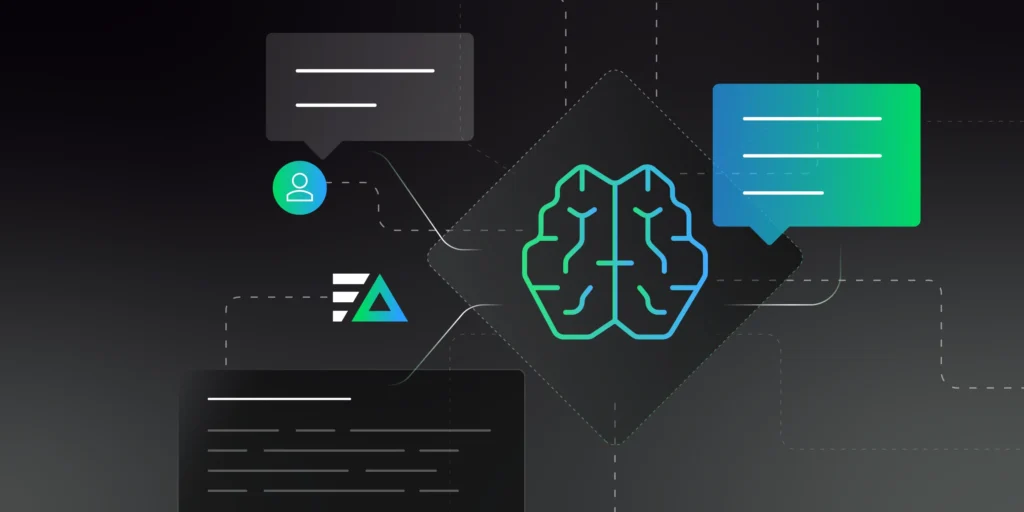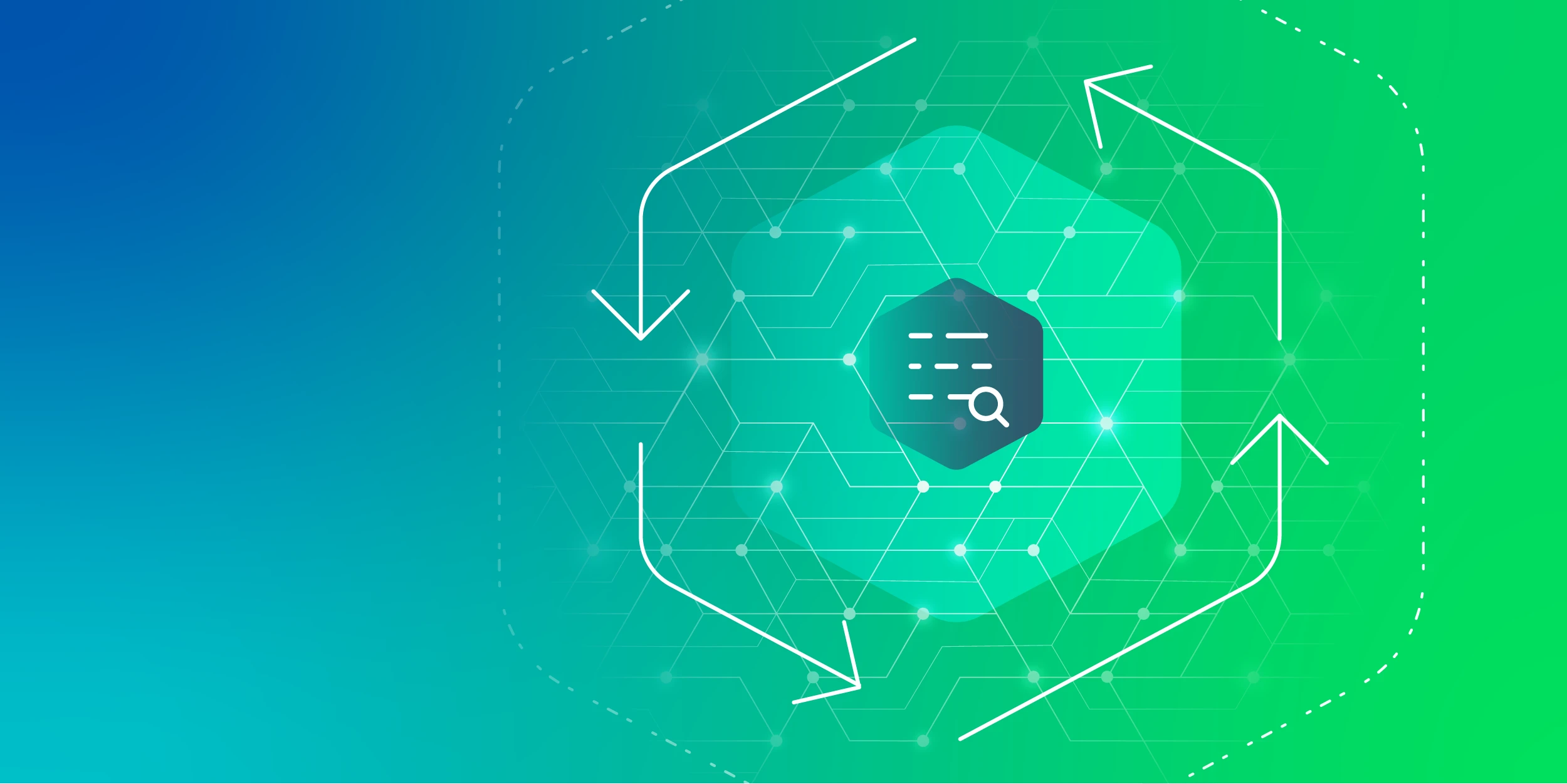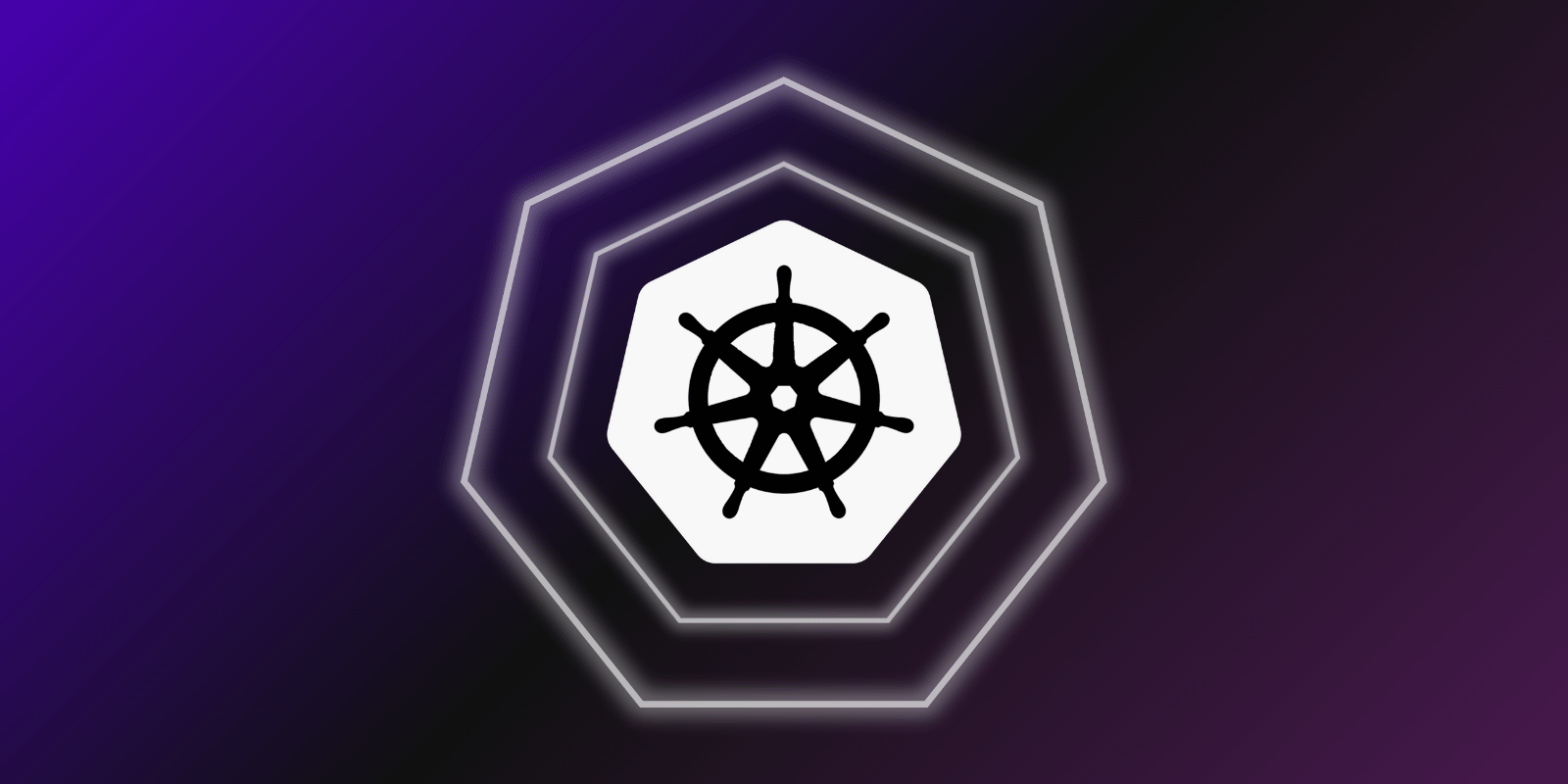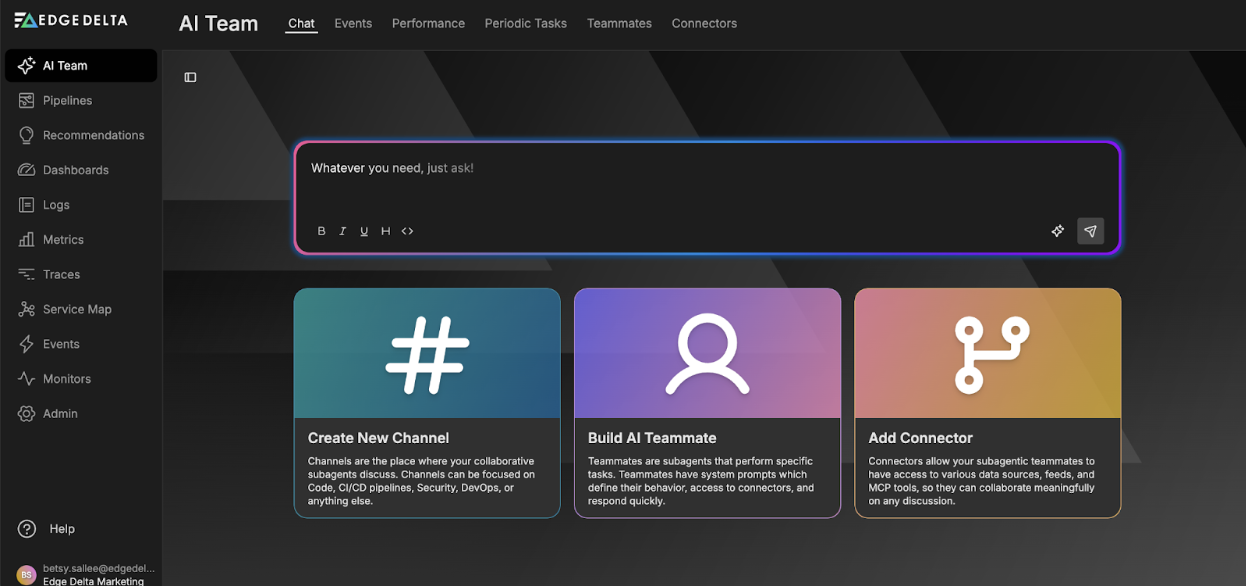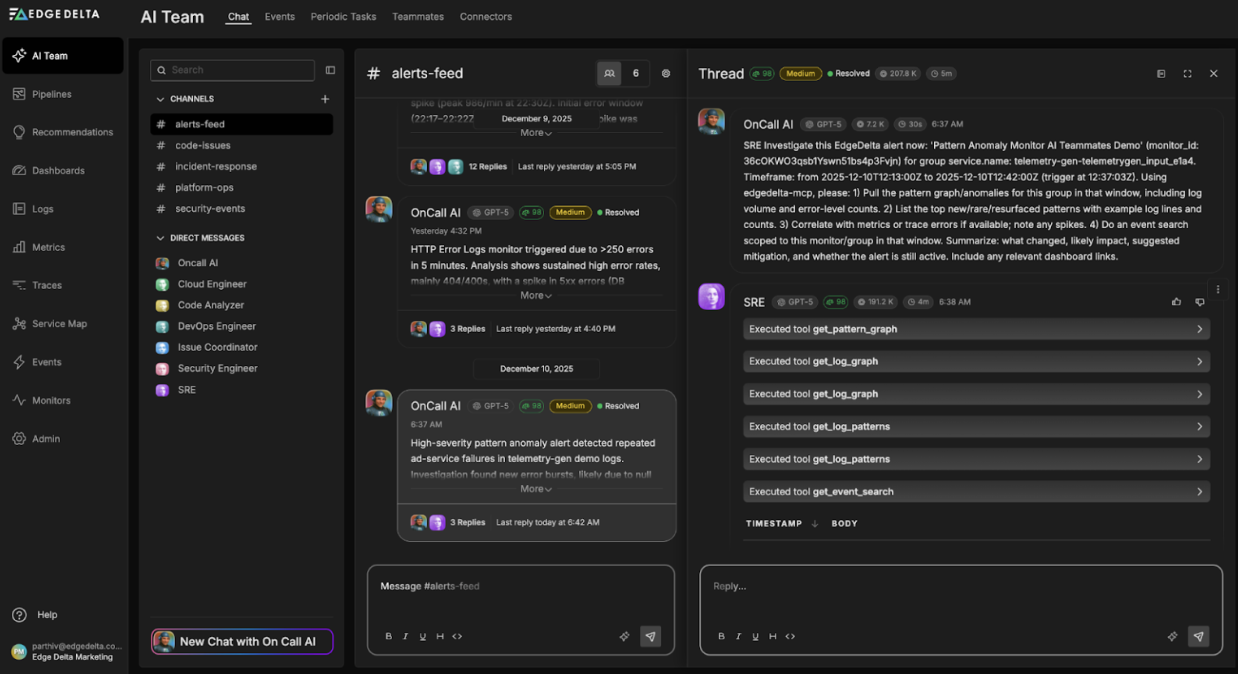Edge Delta’s AI Teammates are collaborative AI agents that streamline workflows across SRE, Security, DevOps, and more. They query and act on live telemetry data and connect seamlessly with the tools you already use, proactively handling tasks like incident investigations, rollbacks, and code reviews within auditable threads. This revolutionary approach to human-AI collaboration not only empowers humans to act quickly, safely, and with confidence, but also frees them up to focus on strategic initiatives that require a human touch.
One of the core capabilities behind AI Teammates is Retrieval-Augmented Generation (RAG), which lets them combine the reasoning ability of LLMs with the precision and context of specialized knowledge bases, including Edge Delta’s product documentation. The result is faster, more accurate resolutions and answers — grounded in real, up-to-date context instead of generic examples.
Automate workflows across SRE, DevOps, and Security
Edge Delta's AI Teammates is the only platform where telemetry data, observability, and AI form a self-improving iterative loop. It only takes a few minutes to get started.
Learn MoreIn this post, we’ll demonstrate how RAG-powered AI Teammates leverage Edge Delta’s documentation in a chat interface, which helps them expedite onboarding, validate scaling decisions, and optimize Telemetry Pipeline configurations.
Expedite Onboarding with RAG-Powered Teammates
Edge Delta AI Teammates include built-in RAG search that’s already connected to Edge Delta’s product documentation. This means that from day one, they can answer product questions with authoritative, accurate guidance without any extra setup, bridging knowledge gaps across teams.
For example, imagine a new engineer has just joined your team and needs to configure a telemetry pipeline. Instead of digging through pages of documentation or pinging a senior engineer for help, they can simply ask their AI Teammate, “How do I set up masking rules in Edge Delta?” The agent responds instantly with the correct steps, pulled directly from the official documentation.
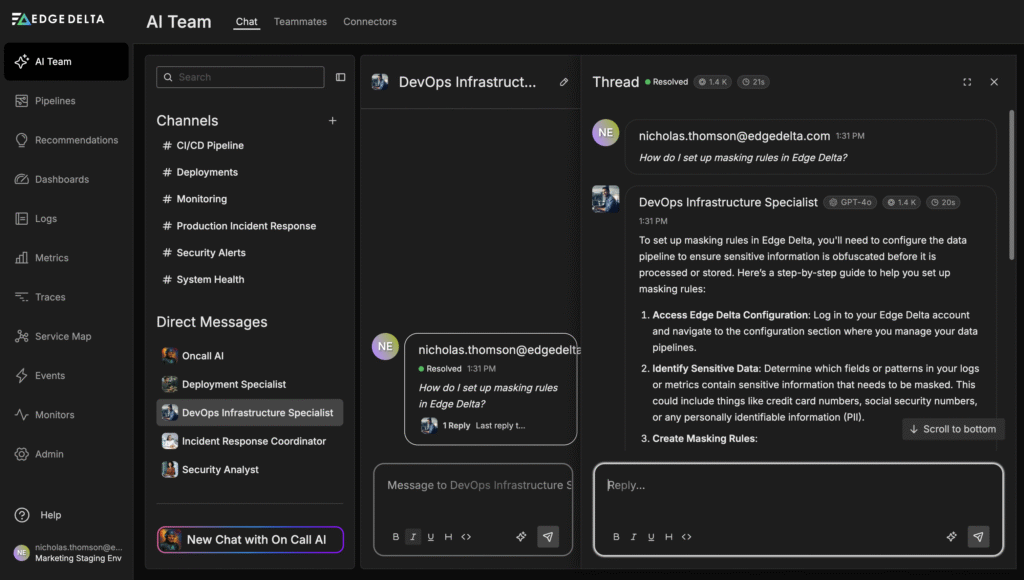
By making trusted sources instantly accessible, RAG-powered Teammates help new hires ramp up faster and start contributing to complex workflows sooner — whether that’s configuring integrations or optimizing ingestion costs. This ensures fewer interruptions for senior engineers and consistent, trusted answers across the team.
Validate Scaling Decisions
Scaling decisions often involve tradeoffs — boosting capacity to ensure performance during peak demand increases costs, while tightening resources to save money risks slowdowns and outages. Autoscaling helps teams adjust infrastructure to meet fluctuating demand and control costs, but it can oversimplify complex performance dynamics. Relying solely on CPU or memory triggers often leads to overprovisioning — especially in Kubernetes environments, where unused resources still drive up spend. Effective scaling requires context from multiple sources — including telemetry data, workload patterns, and documentation — to balance performance, reliability, and cost. That’s where authoritative, documentation-powered guidance becomes critical.
For example, say your service is scaling too late during traffic spikes. The Edge Delta DevOps Teammate might suggest shifting your policy from CPU to request latency as the trigger metric — a recommendation pulled directly from Edge Delta’s scaling playbooks. Or, if a pipeline is ballooning in cost, it might guide you to apply OTTL-based filters that drop low-value logs before they hit an expensive analytics tool.
By validating decisions against trusted documentation, teams can tune scaling policies with confidence, reduce wasted spend, and ensure systems respond proactively to real workload patterns rather than reactive thresholds. Over time, this leads to more resilient pipelines, predictable costs, and less firefighting when demand changes suddenly.
Optimize Telemetry Pipelines
Edge Delta’s AI Teammates are built on top of our enterprise-grade Telemetry Pipelines, which can automatically standardize, filter, enrich, and mask sensitive data behind the scenes. Still, it’s crucial to empower engineers to apply best practices and fine-tune configurations as pipelines evolve over time.
With Edge Delta’s RAG-powered search, AI Teammates can step in as a first line of support. An engineer might ask, “What’s the best way to reduce data volume before it reaches my SIEM?” or “Can you show me the OTTL syntax for standardizing this log field?” The specialized agent responds with instructions sourced directly from Edge Delta’s docs, providing not only the syntax but also context on why a particular approach is effective.
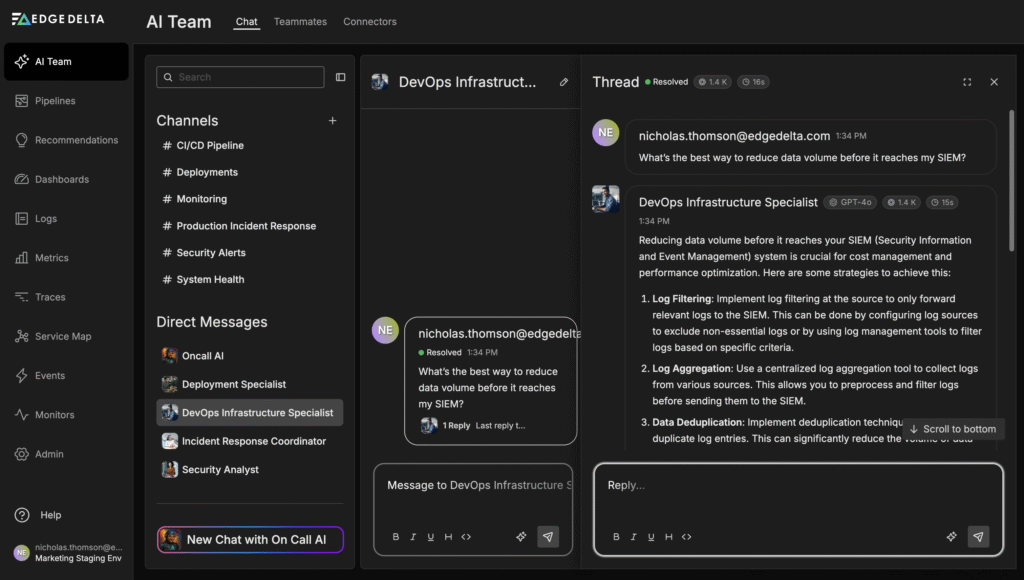
This reduces trial and error and prevents misconfigurations, leading to more efficient, cost-effective, and easy-to-maintain pipelines. It also means teams can experiment more freely with pipeline adjustments, knowing they have reliable, documentation-backed guidance at their fingertips.
Smarter AI Agents Start with Better Data
One major advantage Edge Delta’s AI Teammates have over generic chatbots is that they’re grounded in the right documentation and operational context — delivering precise, trustworthy guidance instead of surface-level answers. By pulling from authoritative product docs and runbooks, they can walk users through configuring a pipeline, debugging a deployment, or interpreting an error — eliminating the guesswork and context-switching that slow teams down. It’s one of the many ways they go beyond typical chatbots: acting as a trusted partner that understands your environment, surfacing the right context and helping you take meaningful action.
Learn more about Edge Delta AI Teammates — or try them yourself.

